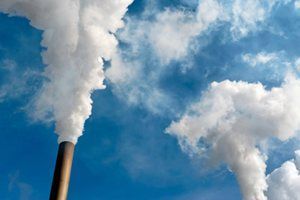In less than a week, households and businesses will face the biggest tax shake-up in more than a decade, as the carbon price and major changes to tax rates and family payments take effect.
The upcoming changes will overwhelmingly benefit low and middle income families while higher income households will pay more.
As compensation for the carbon tax, everyone earning less than $80,000 a year will receive a tax cut.
For example, someone with an annual salary of $65,000 will be saved $303 a year in tax. People earning $25,000 or less will receive the biggest tax cuts, of between $500 and $600 a year.
Extra support will be given to Households receiving Family Tax Benefit Part A, while pensioners, students and some families have recently received increased cash payments.
People earning more than $80,000 will not receive any income tax cuts, but will not have to pay the temporary flood levy any longer, along with others earning over $50,000.
Tax increases on superannuation will target higher income earners, while people earning less than $37,000 will effectively pay no tax on compulsory contributions towards super.
In health care, private health insurance subsidies for individuals earning more than $84,000 will be cut. The Medicare levy surcharge will rise for those who don’t take out private health insurance.
Tax experts said the changes represented the most significant overhaul in tax since the GST was introduced in 2000.
Yasser El-Ansary, the general manager of policy at the Institute of Chartered Accountants, said every taxpayer would be indirectly affected by a carbon price and associated changes.
”I would say this is the biggest agenda of tax change for both individuals and businesses since the GST was introduced,” Mr El-Ansary said.
”Call it whatever you like, in the end a carbon price or a carbon tax represents a major broadening of our indirect tax base,” he said.
Scott Treatt, a partner at the accounting firm Pitcher Partners, said the changes redistributed income from high to low income earners more than previous Labor budgets and the tax cuts of last decade under the Howard government.
”This budget brought about tax cuts which didn’t benefit the higher income earners – not that you can really call someone earning $80,000 a year in the Australian economy a high income earner – and gave the benefits solely to those earning less than that amount,” he said.
Cassandra Goldie, chief executive of the Australian Council of Social Service, said the changes ensured people who needed support were the ones receiving benefits or tax cuts. But, Dr Goldie expressed concern that the compensation for people on the Newstart allowance was too low. ”Dollar for dollar they will get less than people who are on the pension. But in fact their spending requirements are the same,” Dr Goldie said.
The 1st of July marks the starting date for major tax changes.
